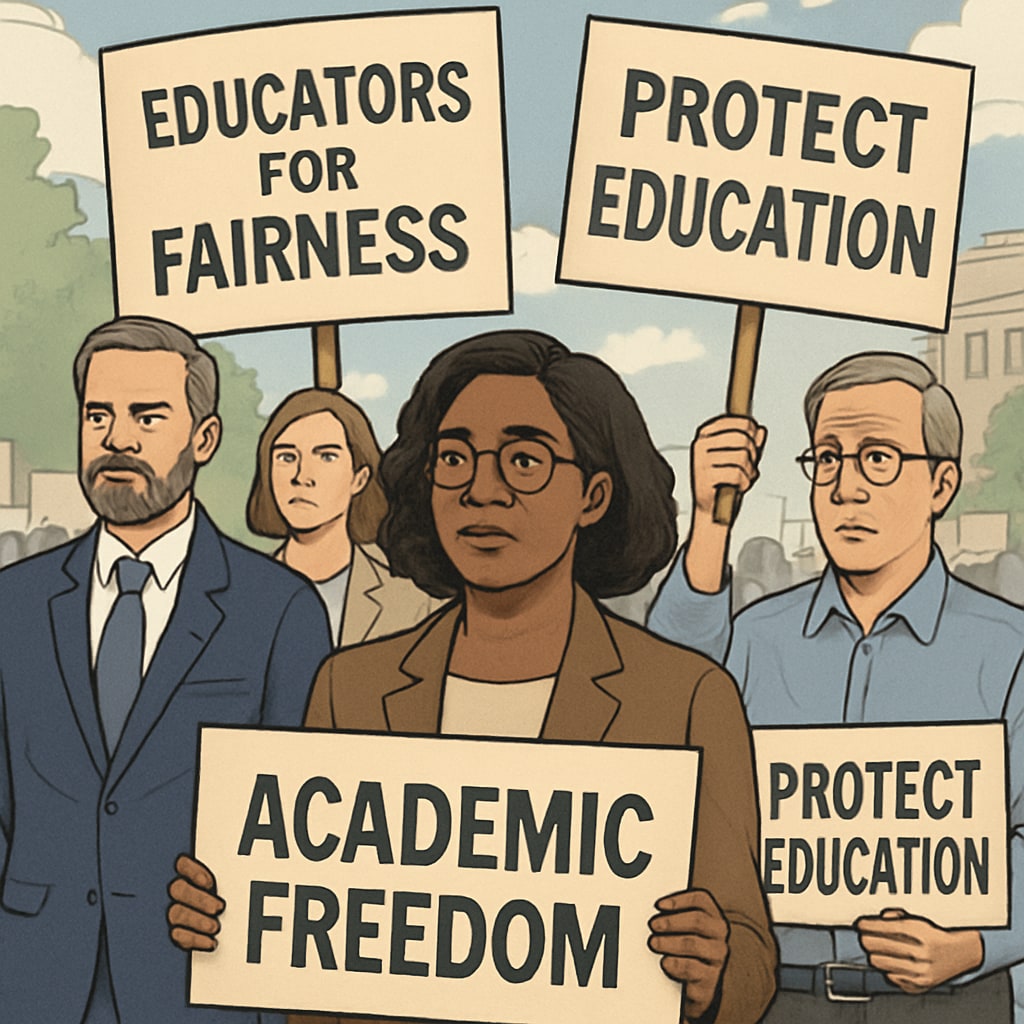Oklahoma recently introduced a controversial policy requiring out-of-state teacher applicants to undergo a political inclination test. The stated goal is to prevent “radical left-wing ideologies” from infiltrating the state’s K-12 classrooms. This decision has sparked intense debate regarding education neutrality, teacher autonomy, and the role of politics in shaping educational systems. Critics argue that this policy risks undermining professional independence and injecting political bias into education, while supporters claim it safeguards children from ideologies they deem harmful.

What Is Oklahoma’s Political Inclination Test for Teachers?
The political inclination test is part of Oklahoma’s teacher certification process for educators moving from other states. Applicants are reportedly required to disclose their political beliefs or demonstrate alignment with “approved” ideological standards. While the exact details of the test remain vague, its implementation reveals significant concerns about the intersection of politics and education. Proponents of the test argue that it serves as a protective measure against the spread of ideas they believe are incompatible with the values of Oklahoma’s communities.
However, opponents contend that such measures could violate constitutional freedoms and discourage qualified teachers from applying. The policy risks creating a chilling effect: educators may avoid Oklahoma altogether due to fears of political discrimination or professional scrutiny.
The Debate Over Education Neutrality and Teacher Autonomy
One of the central critiques of this policy is its potential impact on education neutrality. Public schools are traditionally viewed as spaces where diverse perspectives coexist to foster critical thinking and intellectual growth. Imposing political tests on teachers may threaten this neutrality and limit exposure to a variety of viewpoints. As a result, classrooms could become echo chambers, reflecting only the dominant political narrative rather than encouraging balanced dialogue.
In addition, the policy raises concerns about professional autonomy. Teachers are trained professionals who are expected to deliver curricula in accordance with state standards. Mandating political alignment introduces a layer of control that could undermine their independence and restrict creativity in teaching.

Implications for K-12 Education in Oklahoma
The long-term effects of this policy could be significant for Oklahoma’s education system. Firstly, it may exacerbate the existing teacher shortage by deterring out-of-state applicants. States across the U.S. are struggling to recruit qualified educators, and policies perceived as overly restrictive or politically charged may further shrink the candidate pool.
Secondly, the policy risks eroding trust between educators and the state government. Teachers may feel their expertise is undervalued or that their personal beliefs are unfairly scrutinized, leading to dissatisfaction and possibly higher turnover rates. Lastly, students may suffer the most. Education thrives on diversity of thought, and limiting that diversity could impact critical thinking skills, cultural understanding, and preparation for real-world challenges.
National Reactions and Broader Implications
Oklahoma’s political inclination test has garnered attention beyond state borders. Advocacy groups and educators nationwide are questioning the legality and ethics of such policies. Some argue that it sets a dangerous precedent, opening the door for other states to implement similar measures.
Organizations like the National Education Association (NEA) have voiced concerns, emphasizing the importance of preserving academic freedom and resisting political interference. Meanwhile, legal experts warn of potential challenges under the First Amendment, which protects freedom of speech and expression.
As this debate unfolds, states across the U.S. will likely watch closely to determine whether Oklahoma’s approach is a model to follow or a cautionary tale.
Conclusion: Balancing Protection and Freedom in Education
Oklahoma’s political inclination test for teacher applicants raises complex questions about the balance between safeguarding educational values and protecting professional and constitutional freedoms. While the policy’s supporters see it as a necessary measure to shield students from perceived radical ideologies, its critics warn of the dangers of politicizing education and undermining teacher autonomy.
The future of this policy remains uncertain, but its implications underscore the importance of ensuring that schools remain spaces for diverse ideas and unbiased learning. As the debate continues, it will be crucial to weigh the benefits of ideological screening against the potential costs to educators, students, and the broader educational ecosystem.
For more information about education policies and their impact, visit Education Policy on Wikipedia or Education Overview on Britannica.


